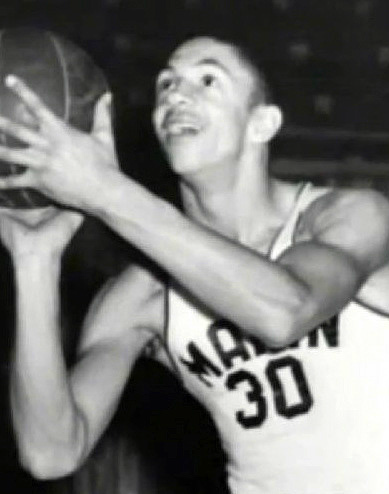
| Year: | Class of 2013 |
| Sport: | Basketball & Track |
The legendary Don Barksdale, a 6’ 6” forward/center who played at College of Marin from 1941 to 1942, played near the end of an era of legal racial segregation so his story as an African American internationally acclaimed basketball star is largely one of firsts.
Although he wasn’t allowed to play on his Berkeley High School basketball team, he was said to have sharpened his basketball skills in neighborhood parks. By the time he arrived at College of Marin he was a formidable player. He helped lead the team to the California Junior College Championship in both 1942 and 1943.
Barksdale took a scholarship to play at UCLA where he helped end a 42-game losing streak against rival USC before joining the U.S. Army to serve in WWII. He returned to UCLA and led the team to a championship in the 1946-47 season. That year, Barksdale was the first African-American consensus NCAA All-American basketball player.
In 1948, he was the first black member or the U.S. Olympic basketball team, a team that won the gold medal. He was the third-leading scorer on the U.S. team. In 1949, he was voted Outstanding U.S. Basketball Player.
In 1950, he was one of the first four black players taken in the NBA draft. But, according to the LA Times, he was doing so well financially, having opened a successful beer distributorship by then, that he didn’t sign with the Baltimore Bullets until 1951. That year he was a Pan-American basketball gold medal winner. At 28 years of age, he played forward for the Bullets and also hosted the team’s postgame radio show. He was the first African-American to play in the NBA All-Star game in 1953.
Upon his retirement from basketball, he was a pioneering entrepreneur in the entertainment industry. He was the first African-American San Francisco Bay Area disk jockey, and later, television host. He moderated a program called “Sepia Revue” that featured big name black entertainers of the day, such as Duke Ellington, Count Basie, Nat King Cole, Sammy Davis Jr. and Louis Armstrong. He would eventually open his own recording studio. He founded Save High School Sports, a fundraising effort in Oakland to support local athletics threatened by a budget crunch in the 80s.